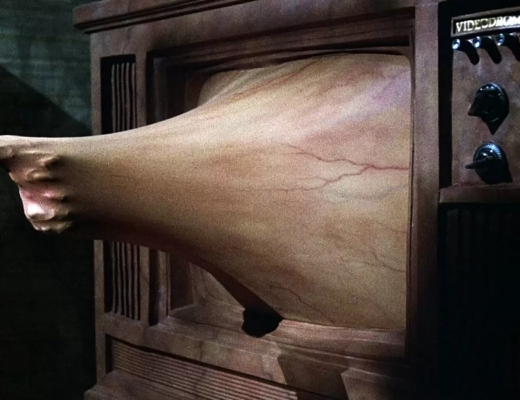The Judith Butler quote (from Dispossession) that opens Jun Li’s Drifting serves as a neat entry point: “Such bodies both perform the conditions of life in public—sleeping and living there, taking care of the environment and each other — and exemplify relations of equality that are precisely those that are lacking in the economic and political domain.” Not only do Butler’s words serve to underline the specific circumstances of the homeless milieu which Li’s capturing — the “public” space — but they also describe his camera’s relationship to that milieu. Following Fai (Francis Ng), and his close-knit homeless community, Li depicts a group who exist in a liminal space; they live on the streets of Sham Shui Po, Hong Kong’s poorest district (which is now starting to be overrun with the luxury condos that engulf many frames of this film). The homeless here are both completely in the public eye and also a certain kind of invisible — a push-pull explored early on in this film, when an unannounced street cleaning, ordered by the government, results in possessions being carelessly thrown away. When Fai and the rest of the group decide to sue for restitution, and an apology, they increase their visibility — suddenly, they’re seen rallying on the news, they’re subjected to interviewers that want to dig into their tragic pasts, and they’re visited by student groups, who want to experience homelessness for a night. All this amounts to external, societal pressures that Li means to view in sharp contrast to the specific kind of culture that Fai and the other homeless (a rough-hewn found family, but not in the corny and harmonious sense that this phrase might imply with some films) have constructed for themselves — one that might be, as Butler says, more equitable than the outside. This is nothing so crude as an ennobling of poverty or a framing of circumstance as a lifestyle choice, but rather it’s an honest observation about community building on the fringes of society and the necessity of getting by as a collective.
It would be easy to accuse Li’s Drifting, which was inspired by true events, for taking part in the same ‘public turns its eye to the homeless’ tactic that it’s openly criticizing. The difference is that Li resists the kind of “prying” to which the media portrayed here are prone. By and large, Drifting leaves the work of characterization to the actors, who, led by Ng’s great performance, convey years of pain and drug abuse just through a look or posture. The troubled pasts of the people here are only rarely excavated, and even then it’s in quiet, private moments that register with intimacy rather than voyeurism. Even the loudest, most expressive of the performances — namely, that given by Chu Pak-Hong, as the most delinquent member of the core group — avoids the mawkish sensationalism that’s so often a pitfall of narratives like this. Indeed, Drifting finds itself in quiet moments of solitary reflection and in the interactions between its characters. Like so much media coming out of Hong Kong right now, Li’s film serves as a reflection of the transition and uncertainty that defines the territory itself. Throughout, characters talk about what Hong Kong is, was, and might become. The sleek, shining skyscrapers that stretch high into the clouds stand in contrast to the messy action on the streets. As Fai states, Sham Shui Po is for the poor, such that the luxury condos have no place here, even as their under-construction skeletons eclipse image after image. In Drifting’s most plainly cinematic moment, Fai ventures to the top of some construction site and a companion raises him, via crane, high above the city. Fai looks out and down at the city that usually looms overhead; he looks at the beautiful lights in the night that have come to symbolize a world shutting him out; and, after a moment of silence, he pisses.
Published as part of CineCina Film Festival 2021.







